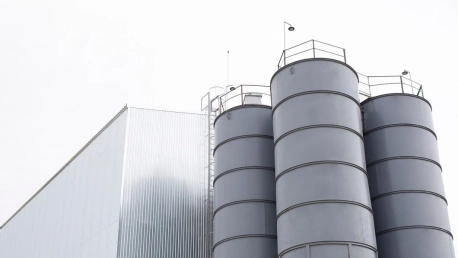Repsol, the prominent Spanish energy corporation, has made a decisive move into renewable energy by obtaining a 40% stake in Genia Bioenergy, a leader in the biomethane sector. This acquisition marks a strategic shift for Repsol from its traditional energy operations, showcasing its commitment to eco-friendly energy solutions. By teaming up with Genia Bioenergy, Repsol has not only expanded its renewable portfolio but also placed itself at the forefront of the biomethane industry, aligning with the European Union’s objectives. The EU’s RePowerEU program mandates a surge in biomethane production by 2030, and Repsol’s stake in Genia Bioenergy signifies its active role in achieving this target. This move is a clear reflection of Repsol’s adaptive strategy in the face of an evolving energy landscape, focusing on sustainability and innovation.
Strategic Investment and Partnership
Repsol’s Commitment to Biomethane
Repsol has made a significant move into the biomethane sector by investing in 30 facilities, ranging from those in the planning stages to plants currently under development. This investment not only signals a strong dedication to the growing biomethane market by ensuring a consistent demand for the produced gas but also underscores Repsol’s commitment to environmental sustainability. By agreeing to be the purchaser of the biomethane, Repsol ensures a reliable market for the product, consequently fostering the growth of this green industry. The company’s venture into renewable energy further positions it as a key player committed to eco-friendly initiatives. Through this strategic action, Repsol demonstrates its intention to actively participate in the transition towards more sustainable energy sources, thus supporting the advancement of a circular economy while securing its transition into a more renewable-focused entity.
Catalyzing the Agro-Industrial Economy
Repsol’s expansion into biomethane isn’t just an energy venture; it’s a transformative move for agro-based economies. Biomethane facilities are emerging as pivotal centers for converting local waste into valuable resources, particularly organic refuse from farming and industry. This initiative holds a dual advantage: ecological and economic. It provides a sustainable method for processing organic waste while simultaneously injecting vitality into local communities through job creation and the introduction of new technologies. The shift towards biomethane signals a promising union between environmental stewardship and economic revitalization, presenting a multifaceted solution that benefits the planet and people alike. Such development can revamp regional economies, offering a model of development that marries innovation with sustainability.
Accelerating Energy Transition
Biomethane’s Environmental Advantages
Biomethane stands out as a renewable energy source with the potential to significantly diminish our carbon footprint by substituting for traditional natural gas. This sustainable fuel, derived from organic matter decomposition, presents a twofold advantage: it serves as an effective waste management strategy and steers us away from reliance on fossil fuels. Its integration into our energy mix aligns seamlessly with Spain’s commitment to lowering carbon emissions and enhancing energy self-sufficiency. Moreover, it encapsulates the European Union’s wider environmental strategies. The cultivation of biomethane could play a pivotal role in fostering a greener future, mitigating climate change impacts, and securing a sustainable energy supply. This convergence of environmental stewardship and practical waste reduction epitomizes a strategic move towards a cleaner, more resilient energy landscape.
Job Creation and Circular Economy
The biomethane sector is emerging as a key player in eco-friendly waste management and job creation, particularly in regions with abundant biomass. Experts like Gabriel Butler of Genia Bioenergy and Juan Abascal from Repsol highlight its role in revolutionizing the industry. This sector’s expansion is more than an environmental win; it’s a catalyst for economic growth, fostering skilled job opportunities, especially in rural communities. Investments in biomethane reflect a commitment to a circular economy where green energy initiatives are valued not just for their environmental benefits but also for their ability to stimulate the job market and promote sustainable practices. The shared vision encapsulated by these investments is of a future where energy production is in harmony with economic prosperity and environmental stewardship.









